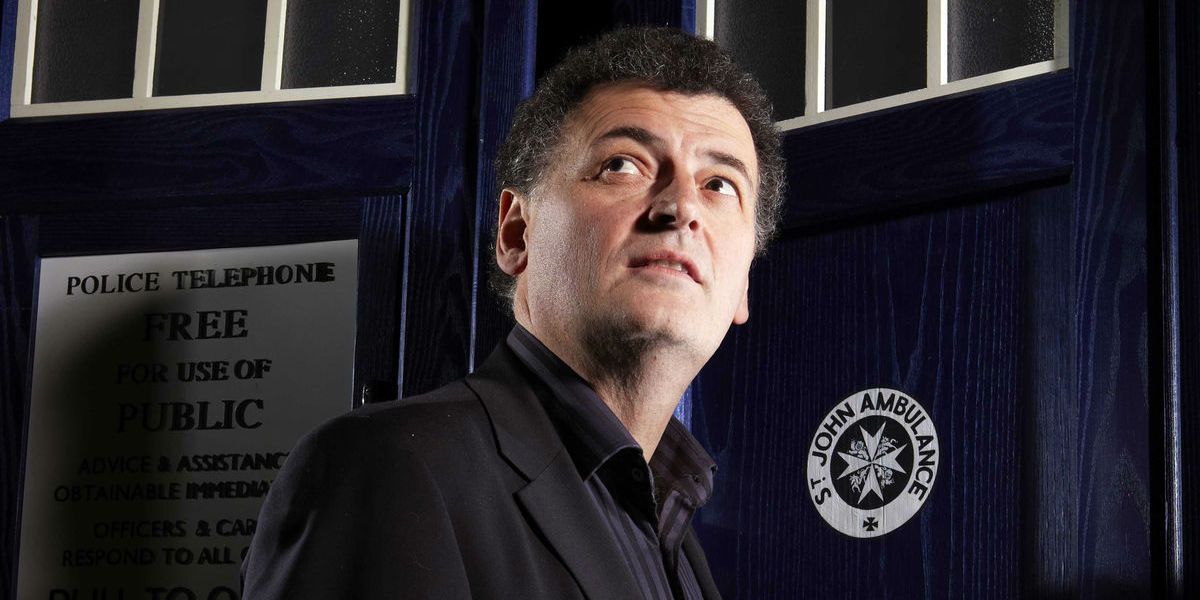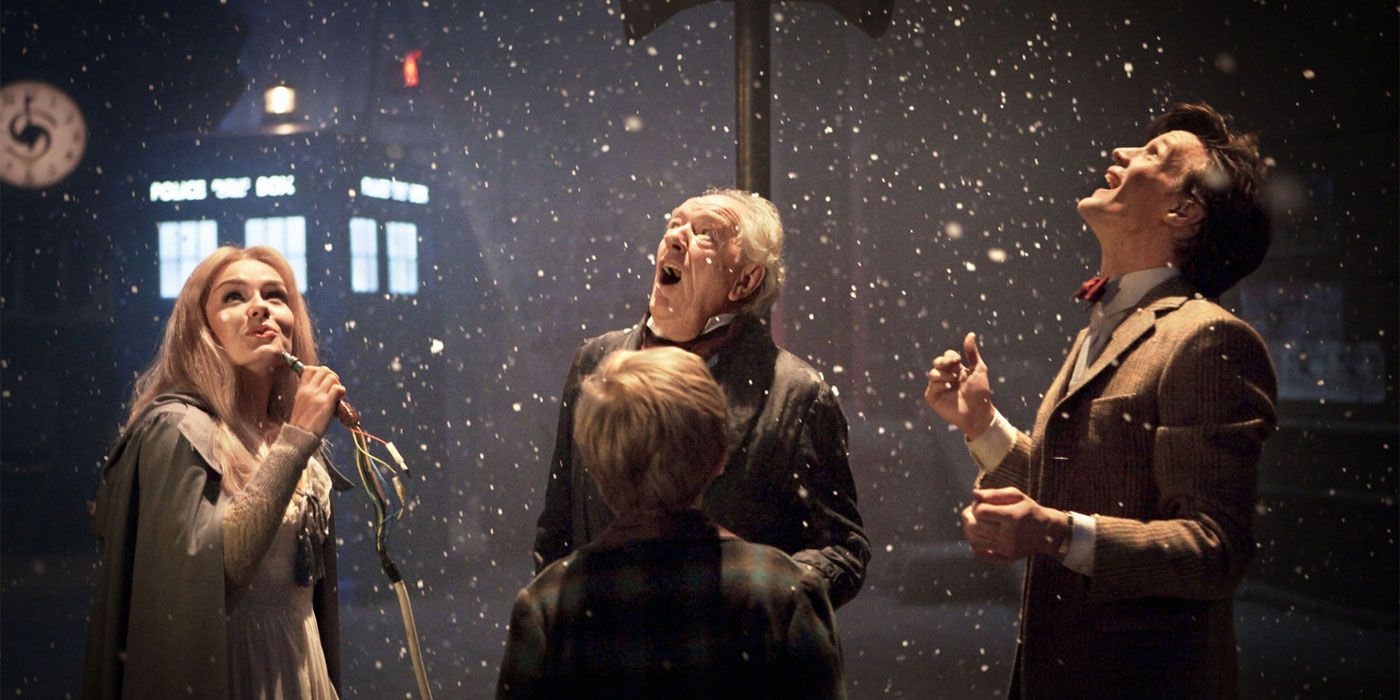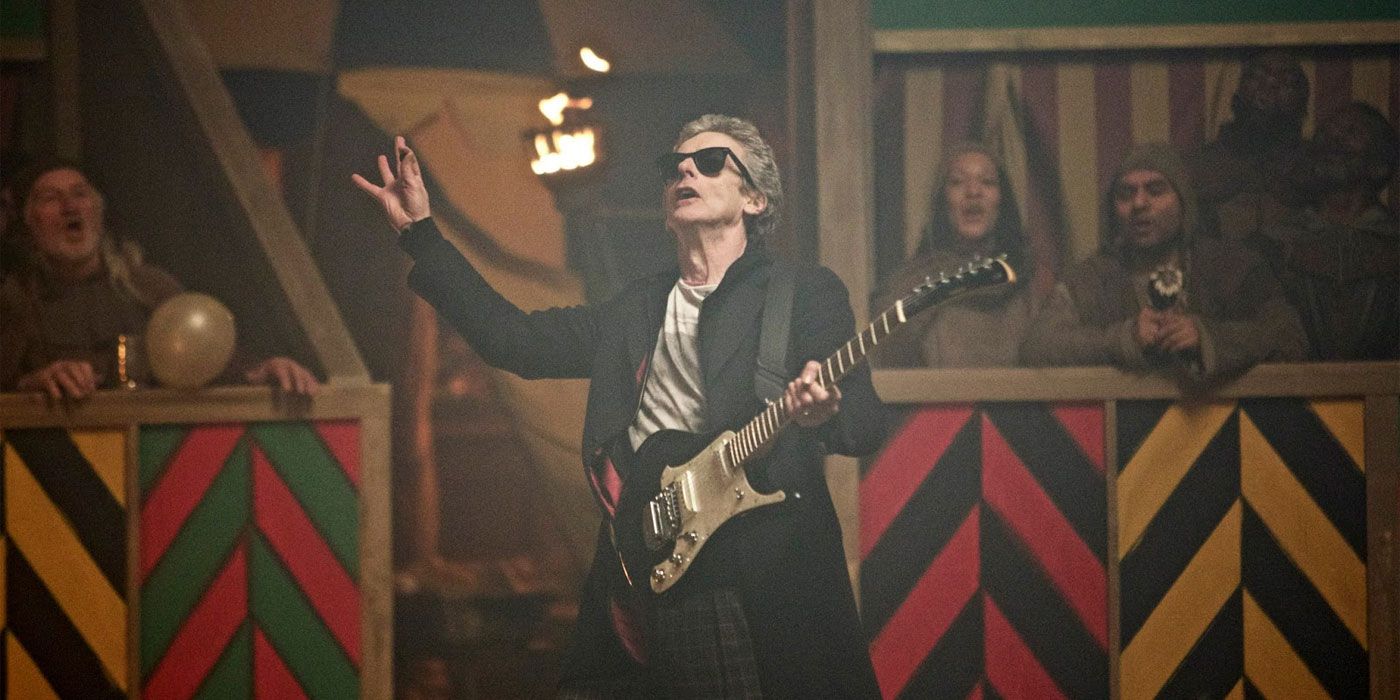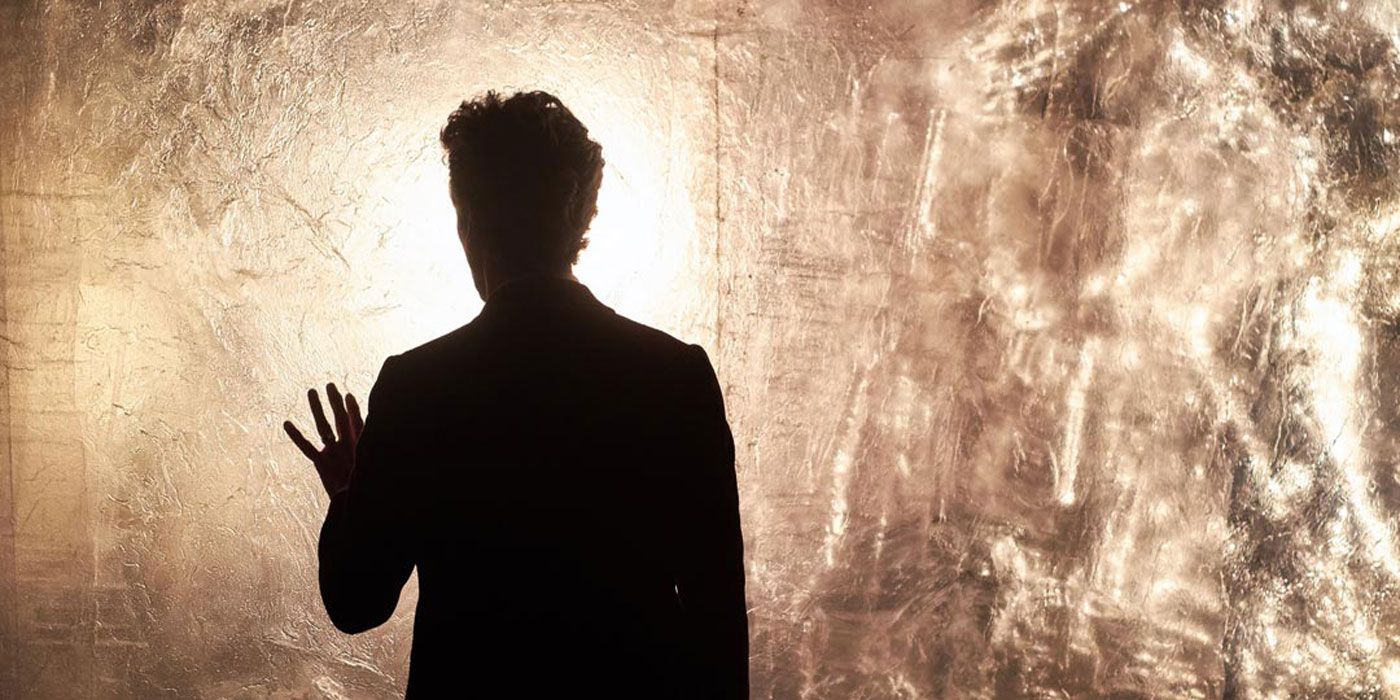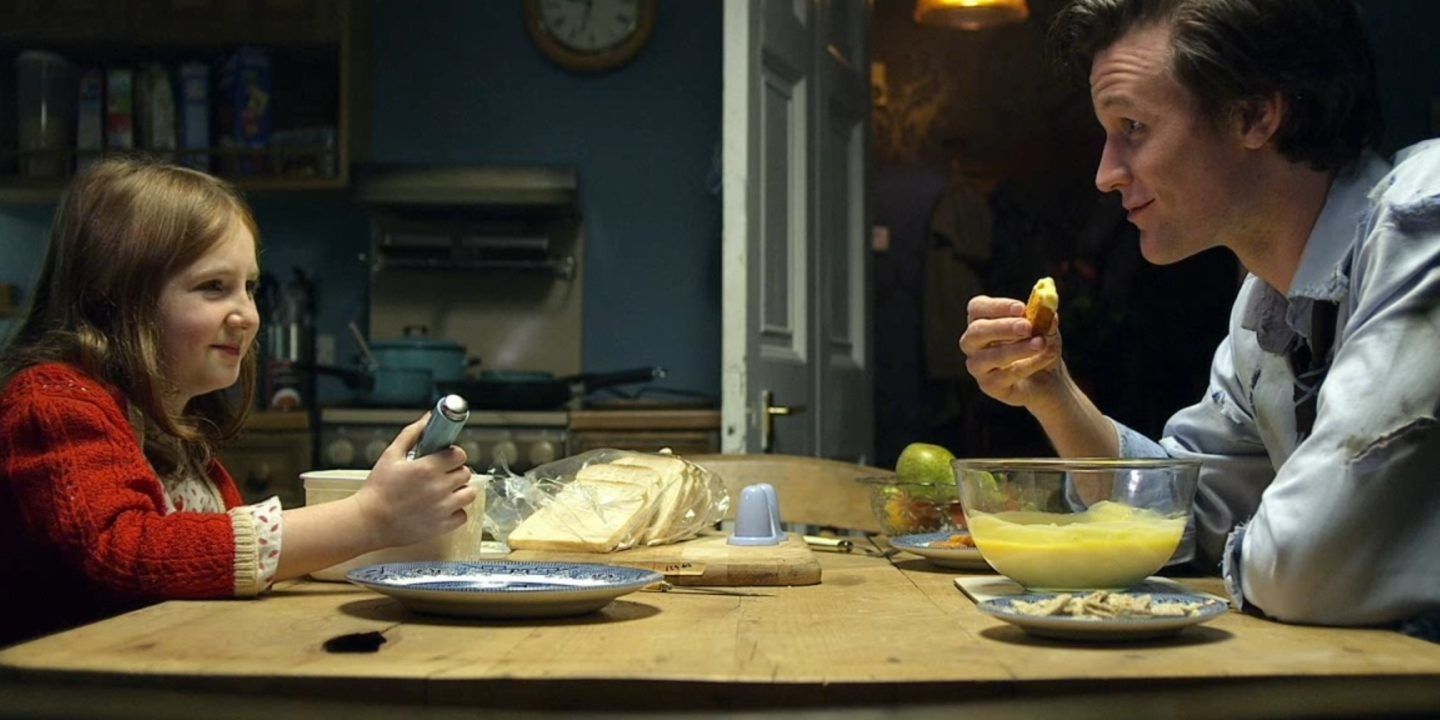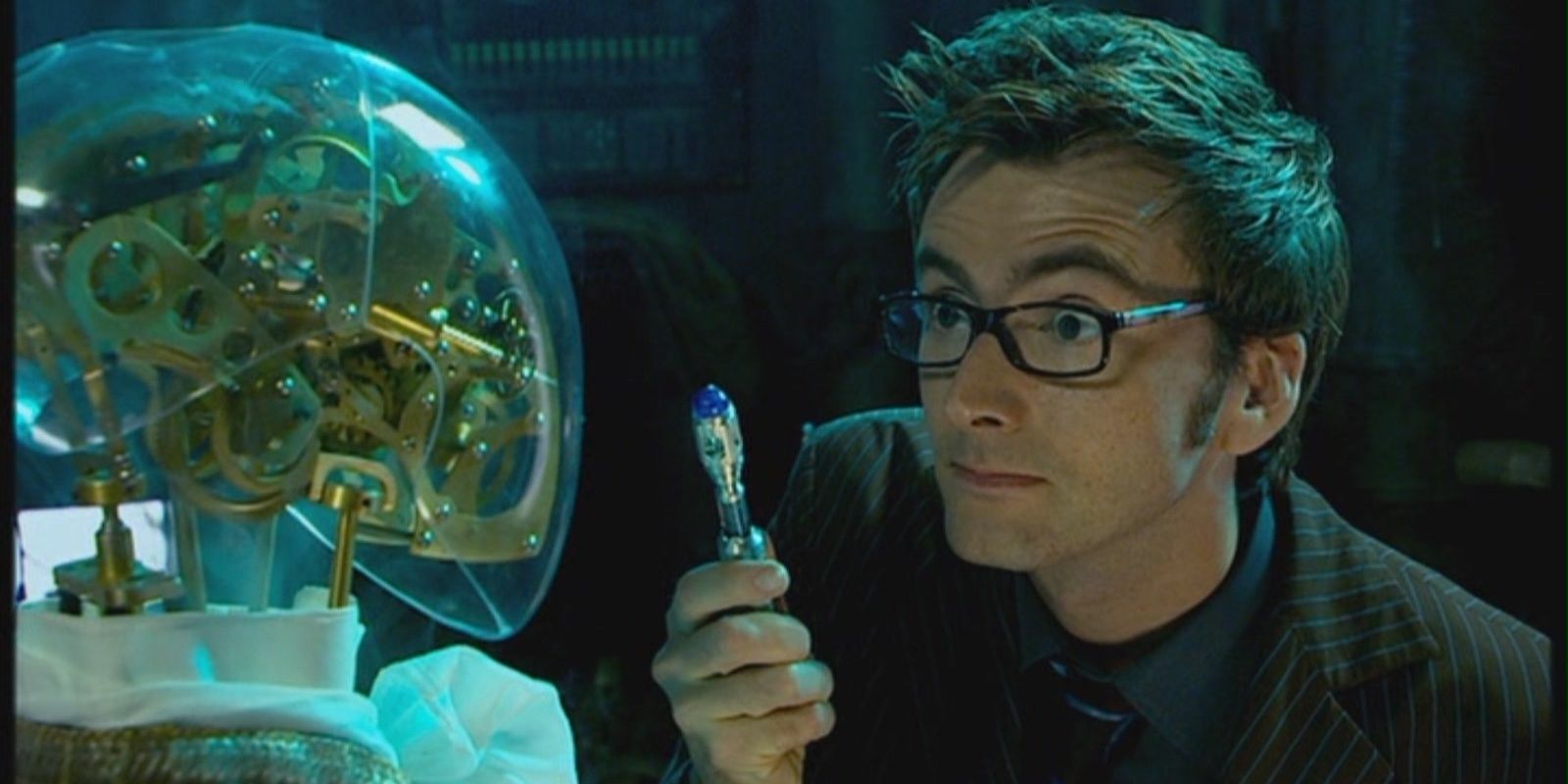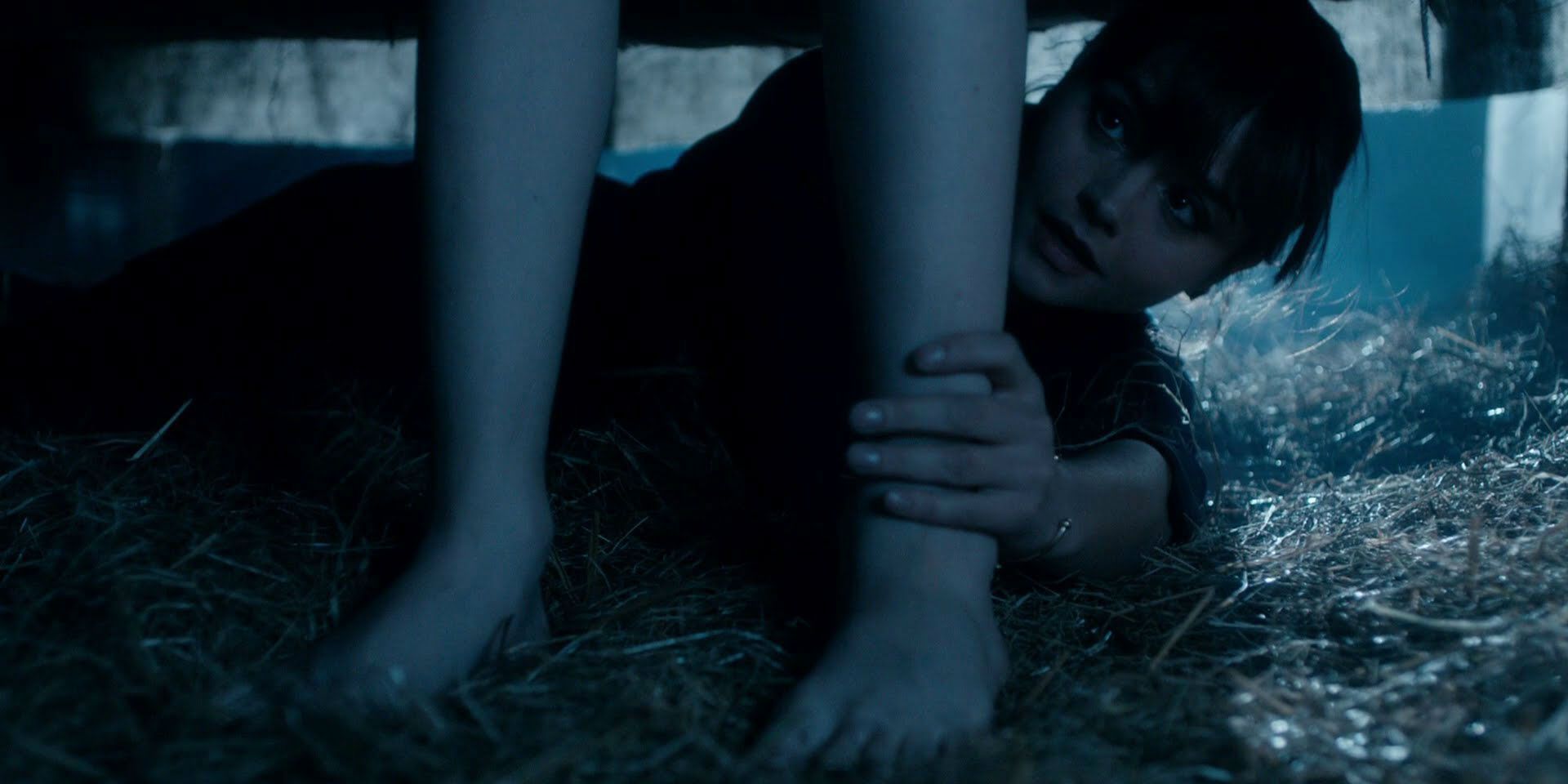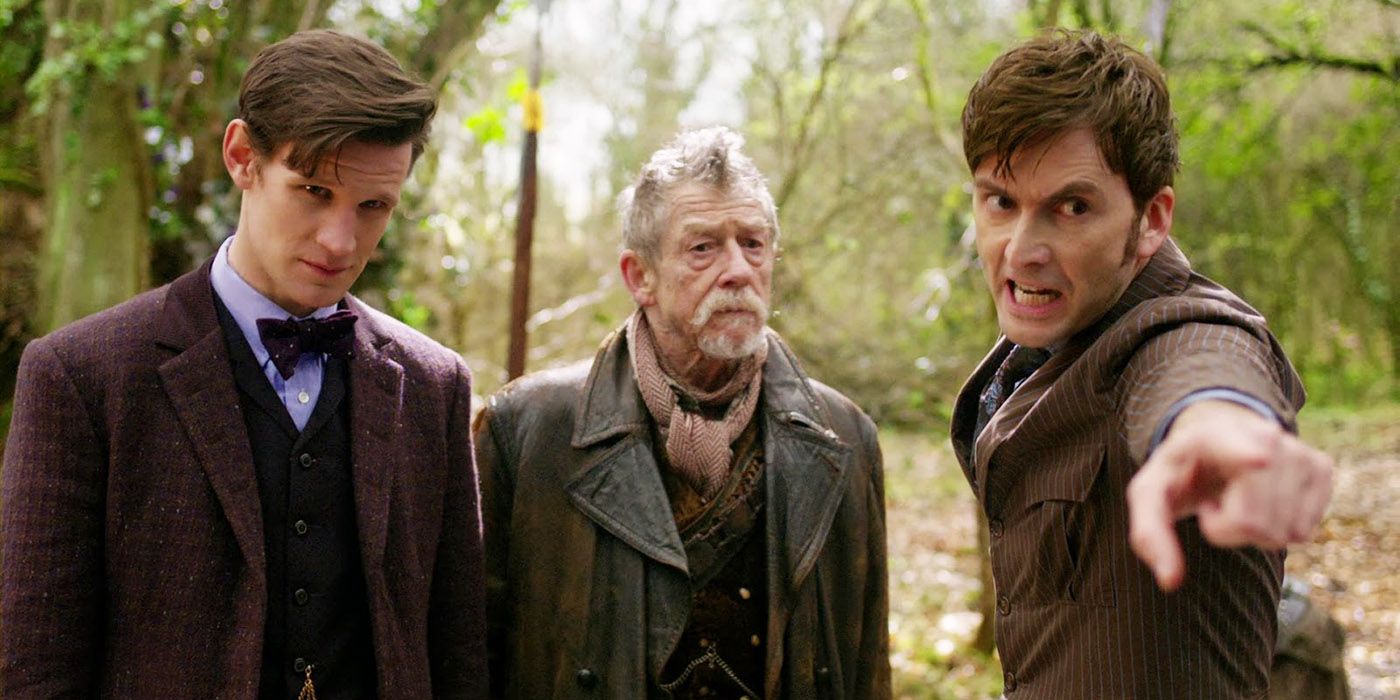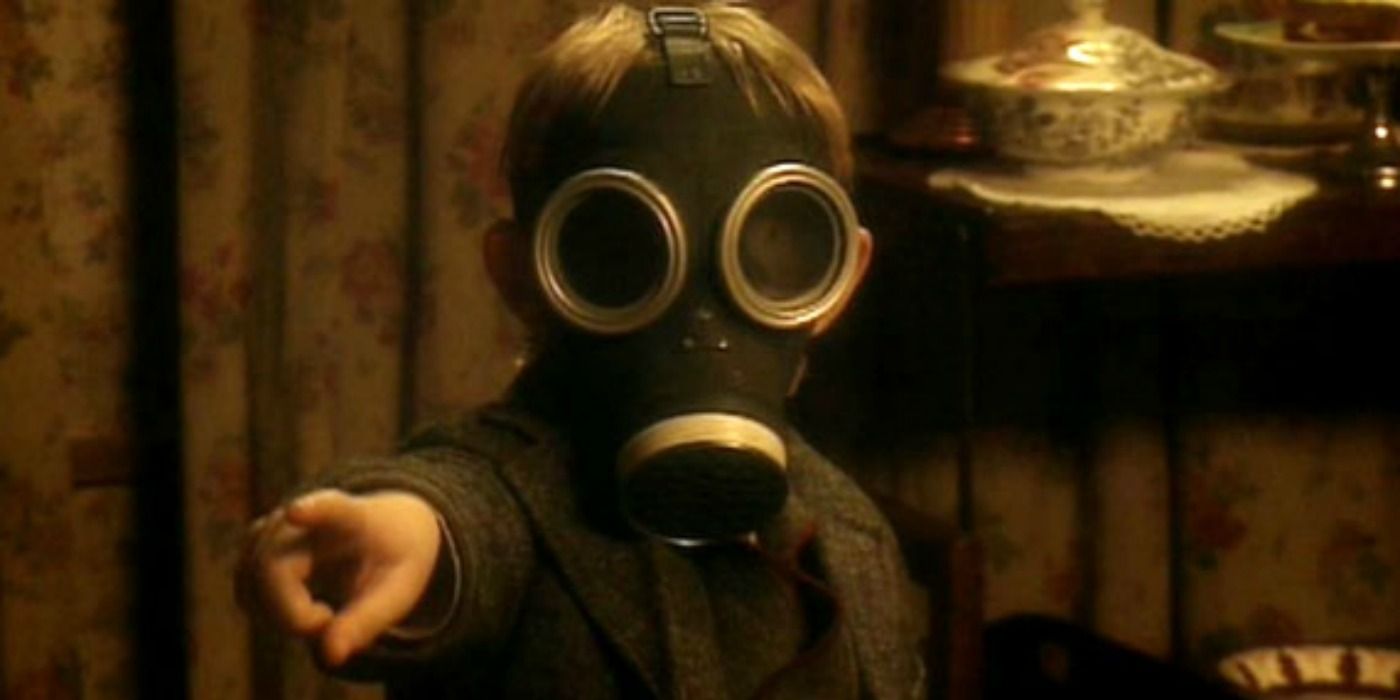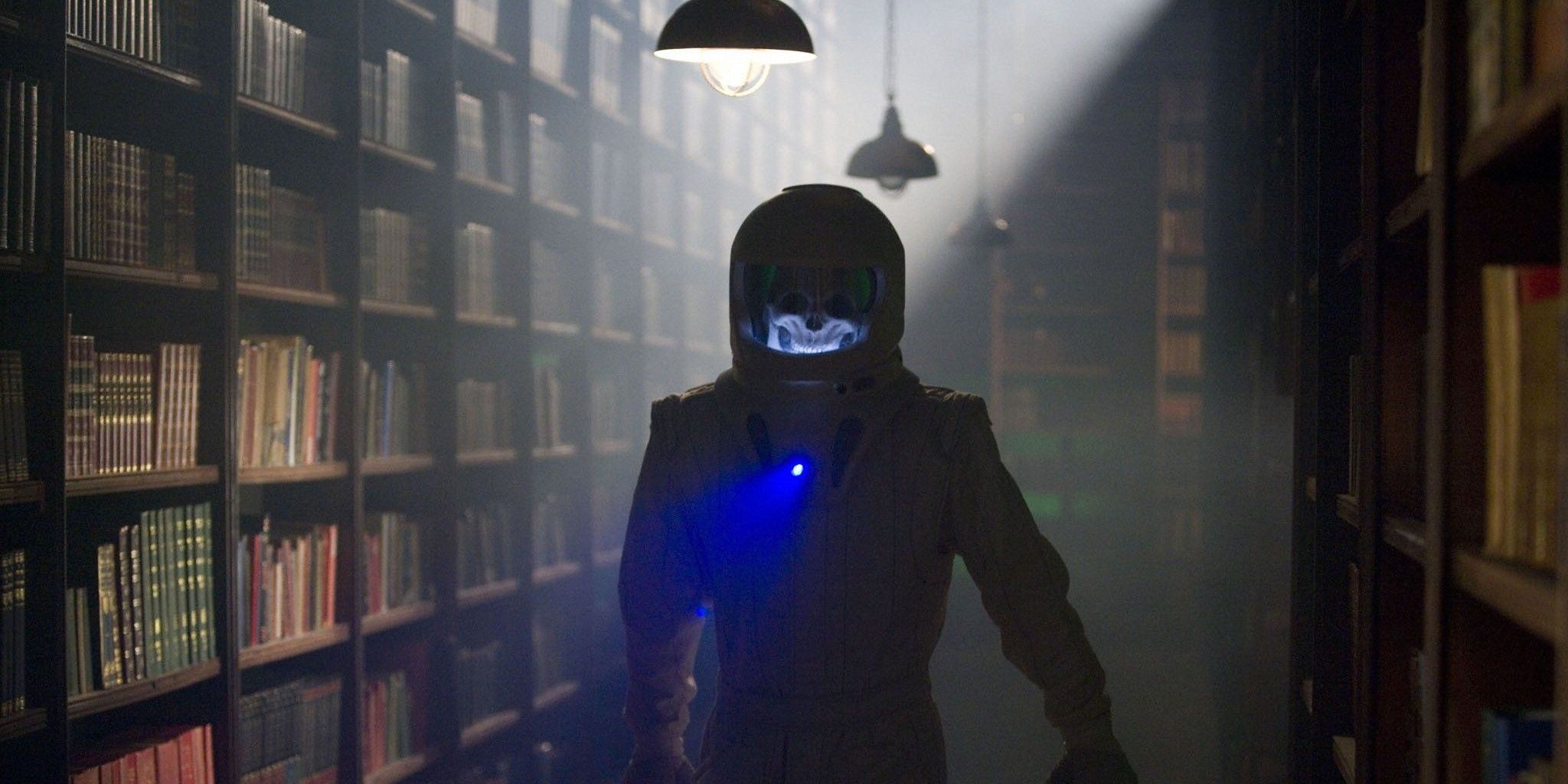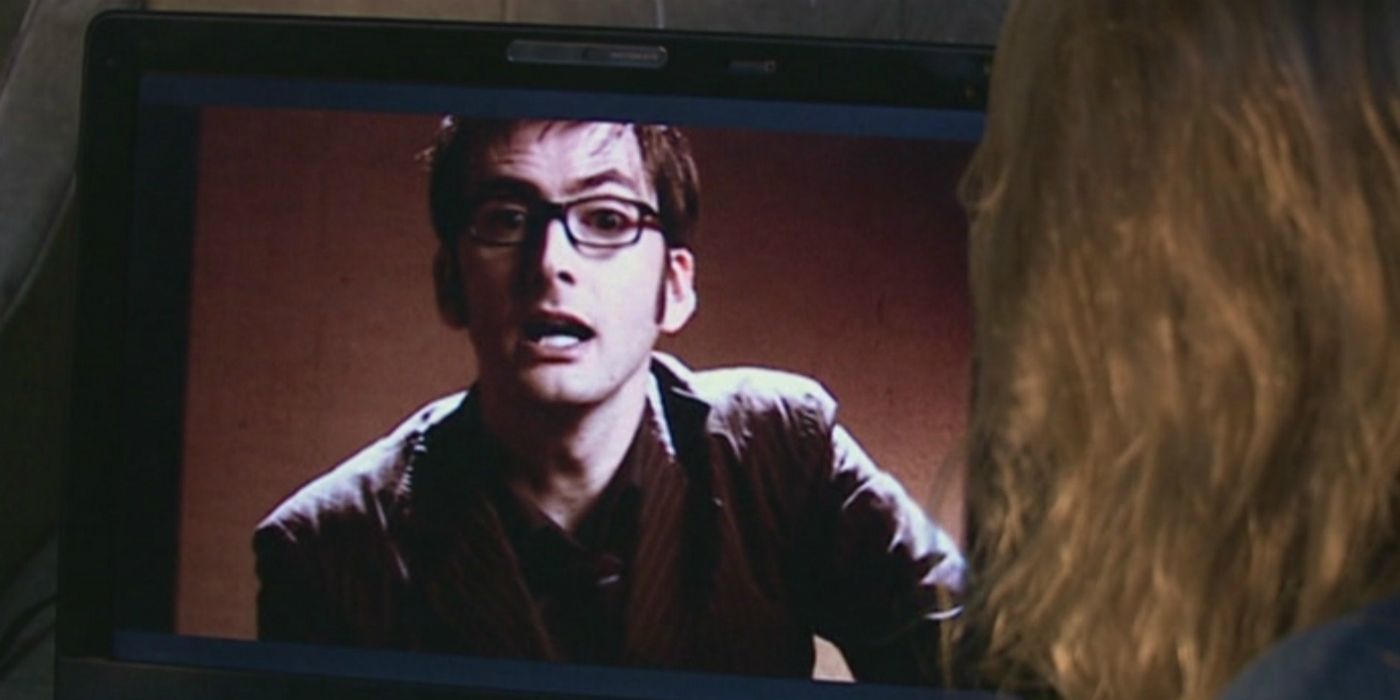Steven Moffat has had a bit of a divisive relationship with fans of Doctor Who. At times he crafts stories that offer the full potential of the series. Yet, at the same time, other stories fall into convoluted, self-important messes.
Yet, there are few writers who left their mark quite as much as he did, and for the most part, his output has only made Doctor Who stronger. Looking at all of his episodes, from his time spent as a staff writer all the way through to his time as showrunner, here are the best of the best.
A Christmas Carol
The Doctor Who Christmas specials were a beloved tradition for many years, entertaining families every holiday season. But, most of the episodes were less about the quality of the story and more of an excuse for more Doctor Who at Christmastime.
Not until Moffat's "A Christmas Carol" did the specials offer exceptionally written and acted stories. This futuristic Dickensian tale surpasses its holiday overlay and offers one of the best stories of the series. Full of all the holiday cheer you want, the episode never shied away from the innate darkness of the original tale. Truly the best of the specials, and one of the best of Moffat's run.
The Magician's Apprentice/The Witch's Familiar
Series Nine opened with a two-parter episode that felt far more like a series finale than a series opener (and all the better). Inspired by the classic Tom Baker story Genesis of the Daleks, this episode of Doctor Who is full of powerful characterization, weird setpieces, and aliens, and a ton of fun.
While Peter Capaldi's Doctor made his official debut in the previous series, this opener finally cemented his characterization of the Timelord. It remains one of the best Dalek and Master stories in recent memory, and drastically alters and improves Doctor Who lore.
Heaven Sent
The beginning of Series Nine saw Peter Capaldi's Doctor paired with his longtime companion Clara Oswald a the peak of their adventures. The finale saw him alone, shut off from the universe in a nightmare prison after the death of his companion.
"Heaven Sent" has all the trademarks of Moffat's signature Timey Wimey narratives, yet never overreaches. It is a melancholy observation on the eternal suffering of The Doctor's immortality, and the many death's he has lived through.
The Eleventh Hour
Talk about an introduction! "The Eleventh Hour" was Moffat's introduction to showrunning, introducing fans to a brand new Doctor and a brand new era for the show. It honored everything that came before but never alienated new fans who might have used it as a jumping-on point.
Matt Smith's Eleventh Doctor introduction is perfection, harkening back to the best of the classic series like Tom Baker or Jon Pertwee. Every hallmark and slogan of this era was established in this first episode, and never once did it feel gimmicky. It is a perfect introduction to one of the oldest serials on TV.
The Girl In The Fireplace
The Girl in the Fireplace was only Moffat's second go at writing for Doctor Who. After his phenomenally well-received Empty Child, expectations were high. Well, this episode did anything but disappoint, offering a beautifully contained and intricate story.
Like the Clockwork Androids themselves, this story had a delicate touch, balancing humor, heart, and multiple twists. This being his first series, you can really see David Tennant coming into his own, channeling his inner geek as well as his natural Casanova personality.
Listen
Many fans had voiced concerns at the time of Clara Oswald's tenure on the series. For some, her character felt far too important, holding a lot of importance and impact on many of the Doctor's lives. "Listen" might not have assuaged those concerns, but it certainly was the best use of the idea Moffat created for Clara's character.
The episode is a far more emotionally satisfying use of Moffat's talents. It has some truly scary moments, especially that thrilling moment in the orphanage. But it is the message at the end of the episode that drives home a perfect lesson for viewers of any age. It enhances the emotional depth of all its characters through thrilling and surprising ways.
The Day of the Doctor
Moffat had an impossible task ahead of him. How do you celebrate a show unlike any other, with a legacy reaching back fifty years? "Day of the Doctor" had a huge mountain to climb, and somehow it easily leaped to the top.
The inclusion of a powerhouse like John Hurt cemented the legitimacy of the episode, and creatively overcame real-world roadblocks. The episode works on a cinematic level never seen in the series before but never betrays the core of what the series is. It remains a celebration of everything Doctor Who and a deep dive into who The Doctor is, and what he means to people.
The Empty Child/The Doctor Dances
Steven Moffat's first journey into the world of Doctor Who remains one of his best. Set in the middle of the London Blitz, this story introduced fans to a brand new level of Doctor Who storytelling as well as the beloved character of Captain Jack.
The makings of Moffat's horror background started right here with the inclusion of "The Empty Child." There are serious scares that are grounded by real-world anxieties. The highlight of the episode is the ending though, with Eccleston's emotional cry "Everybody Lives." It shows the real change in the character post-Time War as he finds his passion for life again.
Silence In The Library/Forest Of The Dead
This series four episode has a lot of the markings of The Empty Child/The Doctor Dances. It introduces a masked horrifying entity that repeats the same phrase throughout the episode, as well as a cheeky new character that will return for many adventures to come.
The Library double feature is a great standalone story, featuring concepts we hadn't seen in Doctor Who, and challenging these characters in new and exciting ways. Meeting River Song where her story ends is also a fantastic bit of writing. It's scary, heartbreaking, and one of the single best episodes of the series.
Blink
It might be old hat to list Blink at number one, but there is no other Doctor Who episode like it. One of the Doctor-lite episodes, "Blink" could be another episode of The Twilight Zone if you didn't know better. It is expertly crafted, self-contained, and the scariest episode of the series ever made.
The inclusion of Carey Mulligan as Sally Sparrow is one of the best bits of casting in terms of guest appearances. Fans still clamor to get the character to join the TARDIS crew one day. But it's the introduction of the Weeping Angels that makes this episode so beloved. An instant classic, the monsters are now up there with the Daleks and Cyberman as icons of the series.

